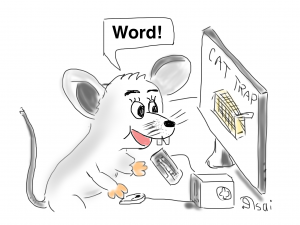Picked up this audibook hopig to learning some thing new. I did learn a few interesting apps but not much else. Most of the “new” things are already happening and happening fast and seem obsolete. The author started a few internet companies that were the ones bring about the changes. At times, I feel the author is tooting his own horns or promoting his own companies (e.g. Infusionsoft.). Here is a quick summary of the book:
On how we live:
Family living: Ceiva.com ‘s auto upload of photos to picture frame on a monthly plan. Facial recognition Billboards like Minority Report. SceneTap, a new app that uses facial recognition to profile the current customers base in a public place like a bar. On cooking: “How to Cook Everything,” “The Professional Chef” and “Fromage.” I couldn’t seem to find the others mentioned in the book. DIY Health: people are sharing symptoms, and illness experience on the net. Police Videos on the net to prove innocence or guilt. Voting via Smartphone. Manage and organize our lives using LifeStream. Even at death, we could have “living” memorials and final farewells. I also learned about “qurify” your own URL (neat), creating Facebook fan page vs. personal page.
On how we learn:
No doubt that the internet is transforming how we learn things. In fact, I can practically learn everything I want to learn on Youtube and Itune University without paying a dime. It’s simply amazing. The author showed a table of old vs. new answers to how we learn. It’s quite a contrast and not exaggerating. To take advantage of those benefits, we need to have 10 characteristics of online learners: self directed, less top-down, inclined to capture new information, more dependent on feedback and response, inclined to collaboration, open to cross-discipline insights, oriented toward people being their own units of production (like a Youtube channel), learn how to search and find the data we need, class is in session 24/7, access to the the best and brightest. I learned about the new website “turnitin.com” that checks if the homework paper has been plagiarized. The author predicts that “as the number of e-learning participants goes up, the number of kids heading to college may go down.” What I don’t understand is why the college tuition keeps going up at a faster-than-normal inflation rate. Is it a bubble?
On the way we buy:
Empowered educated buyers, money exchange through mobile phones, apps that consult, reviews, price compared, trading vs. buying, and etc.
Something new to me are the interesting apps.
On the way we sell:
Renting more (apparel and accessories, cars, experts, and etc.) vs. selling. Use of on-line mobile, location-based coupons, APPvertising (ads in mobile apps), retargeting and relationship targeting, facial recognition to try out accessories, ad targeting, and selling through Twitter.
On the way we work:
More freelance worker for hire (guru.com) and collaboration at work and in the cloud, social network for business referrals, crowd sourcing, and crowd funding.
On the way we play:
Video games, of course, but for the fans in the sports world (integrated entertainment and sports), total musical experience as a club member of a musical group, Bromance (young adults going out together for fun), mobile gambling, creative lyrics through tweeting, creating music via skype, and etc.
On the way we communicate:
Communicating via Facebook, personal web pages, blogs, youtube, Twitter. The use of “augmented reality” (like the yellow scrimmage line in a football game) enhances the sports experience. There are several apps that do a good “augmented” reality job like Goldscape (range finder), DanKam (color blindness), SpyGlass, SpotCrime and etc.
Cybercrime:
The danger of usual cybercrime are lurking due to the open/connected world. The need to protect our children are ever important.

